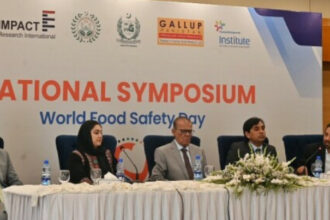About a decade ago, I was sitting with a middle-aged app developer, who was working for a reputed software firm in Lahore. I asked him about the products he was working on, and to my surprise, all of them were replicas of games already popular on Google Play. It clicked me then that despite the opportunities, Pakistani professionals were caught up in a cycle of imitation, leaving little room for innovation.
Today, most of Pakistan’s IT sector is services-based, with only a few products of its own. Moreover, only a fraction of those products make it big internationally. This tells us that there is something direly wrong with the way we approach these opportune industries – we are only focused on the job, rather than using our unique set of skills to add value to projects we work on.
An analysis of the services commonly offered by Pakistanis on freelance platforms reveals that most of these are low-value jobs. While these jobs are enough to make an easy buck, they are not something that can be done in the long term. To understand this further, one must consider the patterns of change. The IT boom made it conducive for developing countries to offer services to make the most of the opportunity with limited resources. Among the countries to jump aboard, India did it the best, and today the country is a hub for IT services, with the exports of this sector alone amounting to more than $190 billion. However, despite having a strong services-based IT infrastructure, many companies are now gradually moving away and are focusing on developing products instead.
Innovation is the key to sustained progress and the culture of value addition is essential for industrial resilience. For developing countries, offering services is not the way to go in the future. There will always be competitors willing to do the task at half the price, prompting the sellers in developing countries to undersell their services. Pakistan needs to focus on innovation and value addition to prevent its precious resources from being wasted on poorly paid jobs.
If this were only limited to the IT industry, certain measures could be taken for that, but the problem lies deeper, and similar trends can be observed across other sectors as well. The entertainment industry notably rehashes ideas and trends in prominence elsewhere in the world. This is a far cry from the uniqueness displayed on Pakistani television and cinemas not too long ago into the past. The process of rehashing the works of others leaves Pakistan devoid of a chance to promote its culture through the media and curtails its ability to project its soft power internationally.
Moreover, Pakistan’s once-booming textile industry has been facing significant competition from the textile industry in Bangladesh lately. While Pakistan has adequate resources – raw material, manpower and skilled labor – it has failed to utilize them properly to produce high-quality fabrics and textiles. The country mostly relies on low-value products, whereas Bangladesh took the opportunity to process imported raw materials into valuable textiles for exports.
Furthermore, Pakistani mangoes are renowned across the globe for their flavor and variety, but the country has been unable to exploit their export potential. The Netherlands is one of the major exporters of mangoes across the world, despite being merely a transit country in the mango trade. The country does not produce any mangoes of its own, rather it imports them and utilizes its strategic location to export them to other states after domestic processing and packaging. Pakistan, lacking relevant facilities, has been unable to make the most of its produce.
The lack of focus on value addition in various domains stems from the mindset cultivated among the country’s youth through the education system and subsequent interactions with society. For decades, the education system has favored rote learning, which not only curtails the student’s ability to think independently but also limits the scope of knowledge. With this process continuing up to secondary school, and in some cases, universities, the students are forced to conform to a set of rules to progress through these stages.
When these individuals enter the workforce, they are unprepared to tackle challenges, and their youthful flair is wasted on mundane and repetitive tasks. Lacking advanced skills, they continue to do what others had been doing, thus continuing the cycle of producing the same stuff, without any innovation or value addition.
To break out of the cycle, Pakistan needs to make changes to the education system. Innovation should be fostered at all levels to enable the students to think out of the box. This approach will enable them to rise to become leaders in their respective fields. Simultaneously, companies should be willing to take risks for long-term survival and growth. Redundancy in the workplace only takes companies so far, and if sustainability is to be pursued, they need to step up and make a difference.
Lastly, the government needs to increase its focus on areas with massive export potential. Concrete measures and initiatives should be taken to support these domains so that companies operating within them can add value to their products and delve into innovation. Not only would this lead to a surge in Pakistan’s exports, but also help build a better standing for Pakistani industries across the globe.
In conclusion, it is high time that Pakistan starts working on adding value to its products. If the necessary measures are not taken now, it would not be too long before the world overtakes us. Then, we would have nobody but ourselves to blame.











